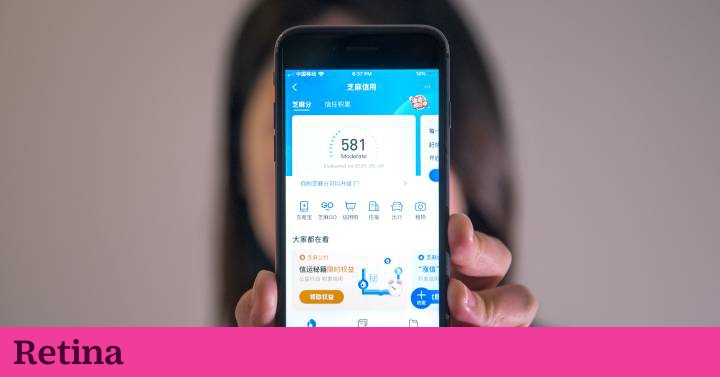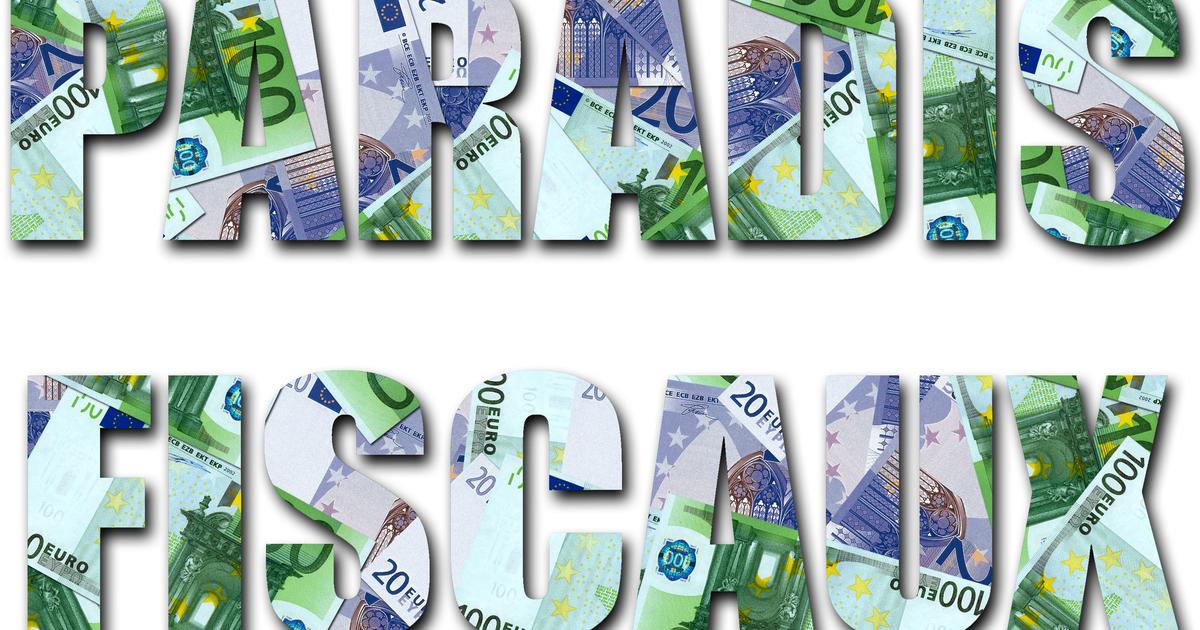FOLLOW
Follow
Cao Guohua learned that he was on China's blacklist when, in 2018, he tried to buy a plane ticket for a work trip.
“As usual, I entered the application of Ctrip, the largest online travel agency in the Asian giant, and searched for the flight I needed.
When I went to pay, a window opened in which they told me that I was not authorized to fly because I was on the national list of dishonest people, ”recalls this young woman from Shanghai, employed by a German automotive multinational.
“I got very nervous and thought it was a mistake.
But I tried to buy a train ticket for the same route and the system of the state-owned railway company also denied me, "he adds.
Concerned, Cao opened Alipay on her mobile and found that her social credit score had also plummeted Zhima, which e-commerce giant Alibaba has designed to reflect the degree of trust that each of its customers inspires and thus determine the services and benefits to which it gives them access.
“Before I had almost 700 points - an excellent level - and now I am at 581. It is a figure that the system calls 'moderate', but never in my life have I seen a lower one.
Now, I can't even split the payments I make on the Internet, ”he says.
By comparison, the writer of these lines has 655 points.
Shortly after, Zhu Zhengfu experienced a similar situation.
"I went to buy a train ticket and they told me that I could not travel in the high speed, or in another class that was not the last, because it was on the black list," he says from his hometown, in the eastern province of Zhejiang.
As in the case of Cao, Zhu did not leave his astonishment, because he had no knowledge of having committed any crime or of having open cases with the justice.
However, since then, the life of these two thirty-somethings is a drama: they can only move around the country by bus or in the last class of the slowest trains, they cannot stay in hotels classified with stars or enter nightclubs, they have access to any type of financing and investment products is prohibited, they are prohibited from acquiring property and vehicles, and, if they did, their children would also be restricted from the schools in which they can enroll.
They have become outcasts.
“I had to quit my job out of shame that they found out about my situation and fired me.
I have been unemployed since then, and I do not even dare to look for a partner because I fear that my case will end up becoming a burden for his family, "says Zhu, whose income is now limited to the sale of different items through the social network WeChat, the so-called Chinese Whats App.
“The problem is that since I am blacklisted, I cannot apply for a license to legally trade either.
It's as if I've been ostracized.
But I have not done anything wrong, "he adds.
THE ORIGIN
Cao and Zhu already know why they are blacklisted.
They are victims of a man: Cao's father, who was also Zhu's boss.
“I had a rubber belt manufacturing company, and it did quite well for many years.
But he bet too much on the stock market and was ruined by the crash of 2015, ”explains Cao, who was unaware of his father's financial situation five years ago.
“Now I know that he had to borrow money to pay debts that he hoped to pay off with his actions, and he asked us to sign some papers.
I thought it was an unimportant administrative issue, I trusted, and signed, ”says Cao.
Something similar happened with Zhu.
"I knew it was a loan, but the company had never caused problems and I signed without being aware of where I was getting," he corroborates.
Zhu and Cao's fingerprints, stamped in red ink, sealed their fortune when they were 26 and 28 years old, respectively.
In reality, although they had no property or money, the two young women were being used as collateral for loans that the businessman was unable to repay.
Unfortunately for them, Cao's father did not go to the banks in search of money, "because SMEs have a very difficult time financing themselves through regular channels", but instead signed contracts with usurers disguised as P2P financial entities.
When creditors began to pressure him and he found he could not pay, he fled to Laos.
Finally, without notifying Cao and Zhu in advance, the financial entities took the matter to court, which blacklisted the two women without even making a statement in front of the judge.
THE FALL INTO DISGRESS
“Now I know that my father accumulated ten million yuan (1.28 million euros) in debt.
The courts have seized all the assets of my family, including my mother's pension, but they continue to demand that we pay several million.
I agree with my father taking responsibility.
But it seems unfair to me that they destroy our lives, that we have not benefited one yuan from that money, ”laments Cao, who was lucky that her company did not fire her when they learned of her situation.
The only solution that loan sharks give them is to satisfy a large part of the debt.
An employee of the Industrial and Commercial Bank of China (ICBC), who also speaks on condition of anonymity, acknowledges that this is the modus operandi of loan sharks: they get the loans to be guaranteed by several people, regardless of whether they have no resources and do not know what the consequences are, and then attack them in case of default.
They know that they will do everything possible to get off the blacklist.
“The problem is that I would need more than ten full years of my current salary to pay the loan, and the limitations they impose on me make it difficult for me to increase income and pay off the debt.
It is the whiting that bites its tail, ”says Cao, who suspects collusion between the usurers and the court.
"I don't know what I can do to get my life back, and I don't have money to pay for a lawyer," he adds.
The nearly 10 million names that make up China's blacklist are public, and Cao and Zhu's are relatively easy to find.
In one of the two sentences that weigh on them, the judges justify the restrictions imposed on them by stating that, "despite having the capacity to pay the debt, they refuse to do so."
However, asked by this newspaper about the apparent procedural deficiencies in this case, the Hongkou District People's Court decided a few months ago to reopen the case by surprise and call Cao to testify, something that the court admits not having done in a start.
UNEQUAL TREATMENT
However, the court considers that the signature of Cao and Zhu is enough to convict them and refuses to enter to assess the clearly illegal conditions of the loans.
According to the documents that this magazine has had access to, the Xinxindai company granted Cao's father a loan worth 1.3 million yuan (166,000 euros) to be repaid in three months.
Although the contract stipulates an interest of 9% —percentage within the law—, Xinxindai, an online P2P credit platform, adds commissions worth 198,250 yuan (25,416 euros).
At the request of EL PAÍS Retina, a Spanish bank has calculated the interest rate on this loan at just over 61% per year.
"That is usury and would be overthrown by any judge in Spain," they say.
Not in China.
And that, curiously, Xinxindai is involved in a large-scale scandal that has even led to massive demonstrations by those who deposited their money to grant loans like Cao's.
The company owes more than 2 billion yuan (250 million euros), has countless cases open in court and, interestingly, has also been blacklisted by the Hongkou.
Despite everything, in a written response sent to EL PAÍS Retina, the judges ratified their sentence and ordered the two young women to reach an agreement with the creditors to lift the restrictions.
"I wonder how it is possible that the Government allows these types of companies, because ours is just one case of many," denounces Cao.
Without a doubt, they proliferate.
A study estimates that, in 2019, shadow banking contributed 18.5% of all the country's financing.
According to a report by Moody's, these entities have assets worth around 59.1 trillion yuan (7.5 trillion euros) and, despite the government's attempts to limit their volume, they grew by 100 billion yuan. (12,820 million euros) only in the first quarter of 2020. "There are many people who do not have access to financing through regular channels and are forced to seek credits outside the system," explains Olivia Long, a freelance graphic designer who requested a loan similar to those of Cao and Zhu to build a house in their hometown, in Hunan province.
“I applied for 200,000 yuan (25,000 euros) over three years, and they asked me to get the signatures of more people, regardless of who.
They also asked for the addresses of my house and my office, as well as the hours I usually work, "he says.
She has not had problems, but admits that the entity works in a mafia way.
“I have no idea of interest, so I just looked at whether I could pay the fees, which amounted to almost 10,000 yuan a month.
They also required me to take out accident insurance that covers 237,800 yuan, and for which I pay 1,800 a month.
It's a lot of pressure, because if the workload goes down, I wouldn't be able to pay and I don't know what would happen, "he adds.
TOWARDS COMPLETE DIGITAL CONTROL
The answer can be given by Cao and Zhu, who now fear the social credit system that China is experimenting with in different places and which it plans to introduce domestically shortly.
The objective is to determine the trust that citizens deserve and to clip the wings of those who defraud or are dishonest, a not very concise term that gives the authorities the degree of arbitrariness with which they feel comfortable.
In any case, in the new system, the two young women will always appear at the bottom of social credit, and this may lead to new restrictions.
“I am not against blacklists, and I think they are necessary to control those who cheat people or commit crimes.
But I believe that justice should analyze each case in detail and require financial institutions that the people who are put as collateral for a loan have enough assets to face a possible default, as is done in the rest of the world ", Zhu states.
Cao is more critical: “Without a doubt, I am angry with my father.
But I am disappointed that the Government allows this trap in which many of us fall and that the courts do not do justice.
I believed that China was a fair country, I believed everything that the propaganda told, but now I see the dark shadows of the system.
Without the separation of powers of a rule of law, in China there is no difference between the state and the government, nor is it different from the Communist Party.
“Ours is not a political case, but a problem that could affect anyone.
But nobody wants to listen to us and nobody helps us, ”Cao says.
The establishment of a social credit system will be a further step in the strategy of total control of the Chinese population, and can give leaders the ability to impose restrictions such as those suffered by Cao and Zhu without going through the courts.
How to denounce erroneous and unfair scores or limit the effect that political issues can have on social credit will be key to determining the power that the system will grant to Chinese Big Brother.
"Sometimes, I feel like my only way out is to escape the country," says Cao.













